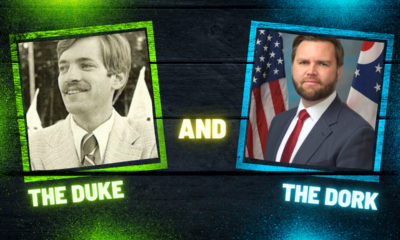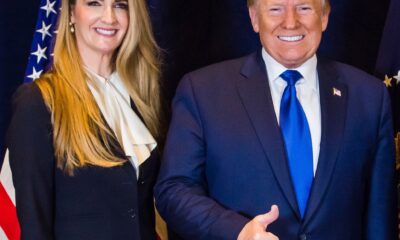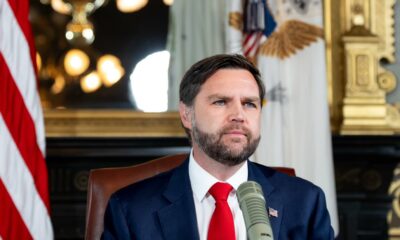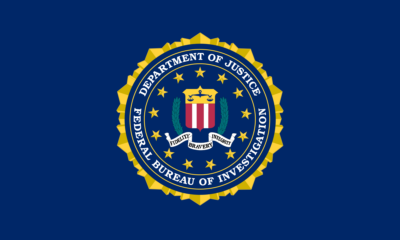Executive
Oversight Panel Investigates Secret Service ‘DEI’ Practices
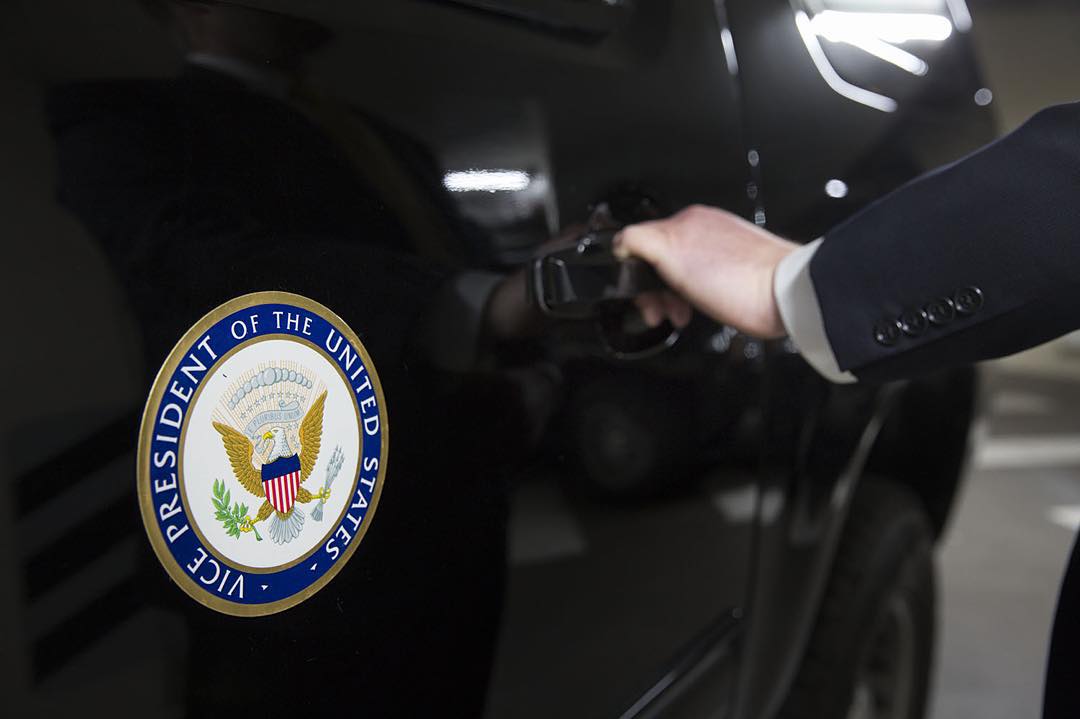
The House Oversight and Accountability Committee has launched an investigation into potential vulnerabilities in the Secret Service’s ability to protect President Biden, Vice President Harris, and former President Donald Trump and their families after an incident last month raised new concerns about the agency’s diversity, equity, and inclusion hiring decisions and vetting process.
A Secret Service agent strikes her superior officer
Rep. James Comer, a Kentucky Republican who chairs the panel, sent Secret Service Director Kimberly Cheatle a letter Thursday requesting an agency briefing on the matter by June 13.
Comer referred in the letter to an incident in late April in which a female Secret Service agent tasked with protecting Harris was removed from her duties after suffering from an apparent mental lapse and physically attacking the commanding agent in charge and other agents trying to subdue her. Several sources in the Secret Service community identified the agent who physically attacked her superior as Michelle Herczeg.
The altercation occurred at Joint Base Andrews, the home base for Air Force One and Air Force Two, the call signs of the Boeing aircraft used by the president and vice president. Harris was at the U.S. Naval Observatory at the time of the incident, and it did not impinge on her travel. A Secret Service spokesperson in early May confirmed that the agent had been “removed from her assignment” following the attack and that the agent had been “displaying behavior their colleagues found distressing,” further describing the incident as a “medical matter.”
RealClearPolitics first reported alarming details of the incident, including that the agent chest-bumped and shoved her superior, then tackled and punched him while still having her gun in her holster, further raising her colleagues’ concerns. Fellow agents wrestled her gun away from her, cuffed her, and removed her from the terminal.
What kind of agency does Cheatle run?
“This incident raised concerns within the agency about the hiring and screening process for this agent, specifically whether previous incidents in her work history were overlooked during the hiring process as years of staff shortages had led the agency to lower once stricter standards as a part of a diversity, equity and inclusion effort,” Comer wrote in his Thursday letter to Cheatle.
“To assist the Committee’s oversight in this matter, we request you designate the appropriate officials with the U.S. Secret Service to provide a briefing to Committee staff on or before June 13, 2024,” Comer added. The Kentucky Republican concluded the letter by reminding Cheatle that his panel is the “principal oversight committee” of the House and, under House Rule X, which governs his panel’s jurisdiction, has “broad authority to investigate ‘any matter’ at ‘any time.’”
The Secret Service acknowledged receiving Comer’s letter but declined to say whether it would meet Comer’s June 13 deadline for a briefing.
“U.S. Secret Service employees, whose work is vital to the continuity of government, are held to the highest professional standards,” agency spokesman Anthony Guglielmi said in a statement. “At no time has the agency lowered these standards. The Secret Service received a letter today from Chairman James Comer, and we will work with the House Oversight Committee to provide a timely response.”
What the Secret Service is supposed to do
The agency is charged with protecting the president, vice president, and their immediate families; foreign heads of state and their spouses while they’re visiting the United States; former presidents and their spouses and minor children; and major presidential and vice-presidential candidates and their spouses.
In early May, the House Judiciary Committee launched an investigation into DEI hiring and recruiting practices at the FBI after hearing from whistleblowers complaining about that agency’s recruitment practices. That inquiry’s announcement noted that Biden issued “his first” executive order “promulgating DEI programs within the Executive Branch” on Inauguration Day. A few months later, on April 21, 2021, FBI Director Christopher Wray announced the hiring of the FBI’s first chief diversity officer.
“The FBI’s hyper-fixation on hitting Biden Administration-imposed DEI initiatives, rather than qualifications that make the best federal law enforcement candidates and officers, has created a climate within the FBI that puts the American public and American civil liberties at risk,” the committee, chaired by GOP Rep. Jim Jordan, said in its release.
Comer’s letter to the Secret Service references a petition, which was created on May 6 and is now circulating inside the agency and within the larger Secret Service community. As of May 30, 215 people had anonymously signed the petition.
The petition, which RCP has reviewed, accuses Cheatle of misusing her post to “perpetuate prohibited personnel practices in recruitment, selection, assignment, promotion and disciplinary action based on demographics, rather than merit.”
Did the agency properly screen its DEI hire?
Following the bizarre scuffle at Andrews, Secret Service agents and officers began privately questioning whether the agency had adequately screened Herczeg’s background and whether she met the same rigorous mental and physical training requirements the agency has previously imposed on other agents to qualify for a vice-presidential protective detail.
In 2016, Herczeg, then an officer with the Dallas police force, filed a gender discrimination lawsuit against the city, claiming she was assaulted by a male superior and asking for more than $1 million in damages.
The suit alleged that Herczeg was “targeted for being a female officer and treated less favorably” and was retaliated against after she reported sexual harassment and illegal actions of other officers. She also claimed she was not allowed to return to a crime-reduction team after she alleged a senior officer assaulted her. A Texas trial court dismissed the suit, Herczeg appealed, and a Texas court of appeals affirmed the lower court’s decision in 2021 and denied a rehearing in 2022.
Ronald Kessler, a former investigative reporter for the Washington Post who has written several books on the Secret Service, said the agency would have traditionally viewed the dismissed discrimination lawsuit as disqualifying.
“Yes, that should have been enough to exclude her because you really have to have a pristine record,” he told RCP. “Certainly, this has been true in the past. There’s tremendous competition, and she never should have been hired.”
Bringing women into the agency
Kessler also pointed to a new initiative, which Cheatle has supported, to increase the number of women in the Secret Service workforce. Secret Service spokesman Anthony Guglielmi confirmed that the agency is one of numerous federal, state, and local law enforcement agencies that have signed onto the 30×30 initiative, an effort to increase the representation of women in all ranks of policing across the country to 30% of the workforce by 2030.
The petition accused Cheatle of “promoting” the 30×30 campaign. It also says Cheatle was the special agent in charge, or SAIC, of the Secret Service’s James J. Rowley Training Center when Herczeg passed her training courses. Exactly when Herczeg went through the training is unclear. Cheatle’s official Secret Service biography shows that she was appointed as SAIC of the training center in February 2016, and a separate photo cutline shows that she was still in charge in November 2017.
“Claims that the Secret Service’s standards have been lowered as a result of our signing this pledge are categorically false,” Guglielmi told RCP in early May.
According to the 30×30 initiative’s website, women currently make up only 12% of sworn officers and 3% of police leadership in the U.S., a low statistic that the campaign’s advocates say “undermines public safety.”
Do women really use less force?
“Research shows that women officers use less force and less excessive force; are named in fewer complaints and lawsuits; are perceived by communities as being more honest and compassionate, see better outcomes for crime victims, especially in sexual assault cases, and make fewer arrests,” the website states.
“It is critical that participating agencies focus on increasing the representation of all women,” the website adds. “They must account for the diverse experiences of all women of all backgrounds and life experiences to better promote the creation of a diverse and inclusive workplace for everyone.”
The Secret Service has an “Inclusion and Engagement Council,” which pledges to become the agency’s “game-changers” when it comes to helping the agency “build, foster, create and inspire a workforce where diversity and inclusion are not just ‘talked about’ but demonstrated by all employees through ‘Every Action, Every Day.’”
During President Obama’s time in office, the Secret Service experienced a string of scandals and several changes in leadership, including the appointment of its first female director, Julia Pierson. Obama appointed Pierson in March 2013 in an attempt to change the culture of the agency, which was then under scrutiny after a Colombian prostitution scandal. But Pierson lasted less than two years on the job when she resigned in the face of multiple revelations about agents’ drunken behavior and security breaches, including one in which Obama had shared an elevator in Atlanta with an armed guard who was not authorized to be around him.
Scandals affecting the Secret Service
In 2014, a blue-ribbon panel convened at the height of several scandals, and several members of Congress urged Obama to tap an “outsider” to head the agency, a recommendation he ignored. There were complaints that only a new director unconnected to the current and former leadership could truly change the insular culture and uneven discipline partially responsible for low morale and a mass exodus of agents and uniformed division officers fleeing the agency.
In August 2022, Biden appointed Cheatle, a 27-year veteran of the agency, as the director and only the second woman to lead it. She replaced James Murray, a Trump appointee, who announced his retirement after three years on the job. During the Trump administration, the agency faced its own set of controversies, including missing text messages to and from agents around the time of the Jan. 6, 2021, riot at the U.S. Capitol.
In recent years, the Secret Service has ranked either dead last or near the bottom of a government employee survey of job satisfaction conducted annually by the nonpartisan Partnership for Public Service. The agency’s most recent ranking for 2023 is near the bottom at No. 375 out of 432 agencies.
This article was originally published by RealClearPolitics and made available via RealClearWire.
Susan Crabtree is a political correspondent for RealClearPolitics. She previously served as a senior writer for theWashingtonFree Beacon, and spent five years asa White House Correspondent for theWashington Examiner.
-

 Accountability3 days ago
Accountability3 days agoWaste of the Day: Principal Bought Lobster with School Funds
-

 Executive1 day ago
Executive1 day agoHow Relaxed COVID-Era Rules Fueled Minnesota’s Biggest Scam
-

 Civilization9 hours ago
Civilization9 hours agoWhy Europe Shouldn’t Be Upset at Trump’s Venezuelan Actions
-

 Constitution2 days ago
Constitution2 days agoTrump, Canada, and the Constitutional Problem Beneath the Bridge
-

 Civilization1 day ago
Civilization1 day agoThe End of Purple States and Competitive Districts
-

 Christianity Today9 hours ago
Christianity Today9 hours agoSurprising Revival: Gen Z Men & Highly Educated Lead Return to Religion
-

 Civilization5 days ago
Civilization5 days agoThe devil is in the details
-

 Executive21 hours ago
Executive21 hours agoWaste of the Day: Can You Hear Me Now?





